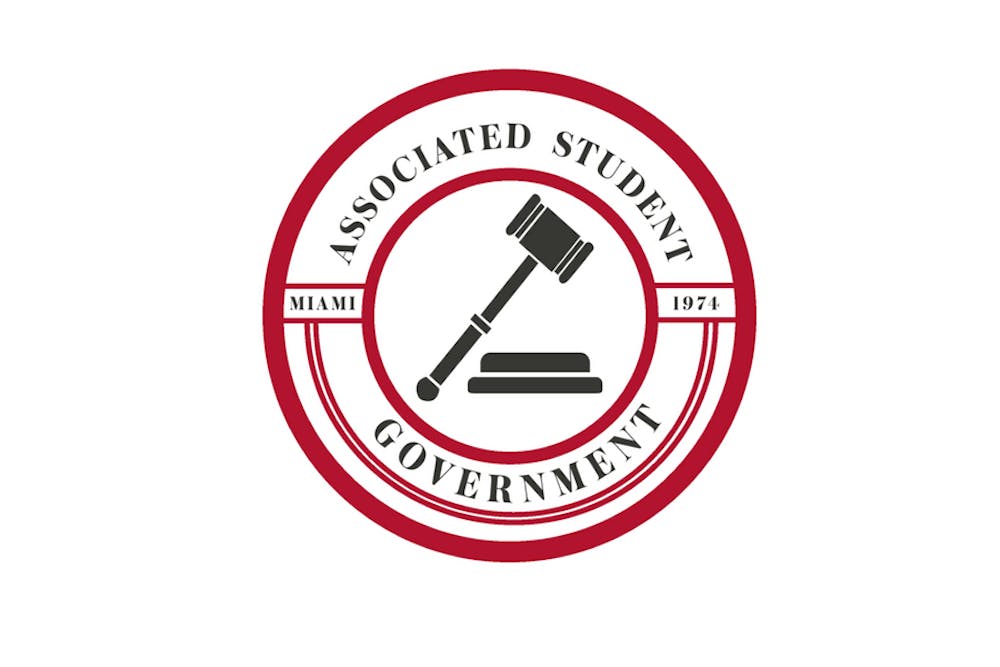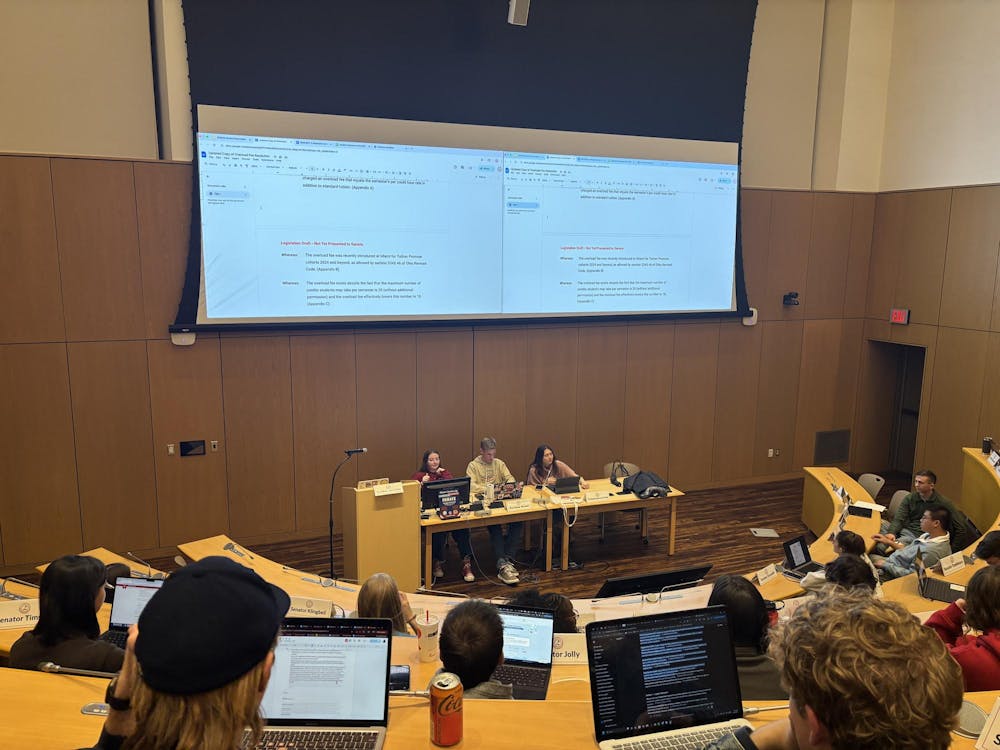Ohio Gov. John Kasich has recommended that public higher education institutions limit the cost of textbooks to no more than $300 per year. Miami's ASG Senators enthusiastically knocked on their desks to show their support when the initiative was announced at their meeting on Tuesday, Feb. 21.
"But," David Creamer, senior vice president for finance and business services, warned, "you have to think about what the consequences might be."
With that, the knocking ceased.
"The cost of actually doing that is at least four times that amount," Creamer said.
According to the Executive Budget Proposal, in addition to cutting textbook costs for students, public higher education institutions would be required to freeze tuition and all special and general fees for two years, beginning Fall of 2018.
Randi Thomas, director of institutional relations, spoke to the ASG Senate last Tuesday as well, further emphasizing the impact of the proposed state budget and its implications for education at Miami.
If an institution cannot raise tuition and fees, Thomas said, but is also expected to find the funding for the cost of textbooks per student, a budgetary mandate such as this one would cause issues.
"Where is that money coming from?" Thomas asked. "It's gotta come from somewhere.... Quality is going to take a hit."
The proposed budget also includes a one percent increase in funding to public higher education institutions for a total of $2.7 billion, according to the Executive Budget Proposal.
Despite the funding increase, both Creamer and Thomas believe it will not be enough to offset the costs associated with the textbook mandate.
"Optimistically, we are going to see about a one percent increase each year for the next two years," Creamer said. "But there's a strong likelihood that we're going to see, once problems are resolved with the governor's budget, that there will actually will be no new funding and may even be a reduction in our funding."
Creamer reassured the Senate that managing these kinds of consequences for students' educational experiences is a part of his job.
Enjoy what you're reading?
Signup for our newsletter
"We are currently working with the governor, with the general assembly, to find out what makes sense long term to not only control the cost of textbooks, but to ensure that you have the right materials that support your academic activities," Creamer said.
Thomas asked the Speaker of the Senate to, at some point in the near future, poll the Senate body on where they stand on the funding issue.
"That information would be very valuable to me," Thomas said. "Some of our colleagues at other institutions -- OU, YSU, Cleveland State and a number of public institutions' Student Governments -- have weighed in on these issues, expressing that while we all are interested in reducing the price of textbooks, simply to shift the burden from the current system to an unfunded mandate is not the best way to proceed."
A number of ASG Senators plan to propose a bill regarding the mandate in the coming weeks. Until then, students may voice their thoughts and concerns on the issue to their representatives.




